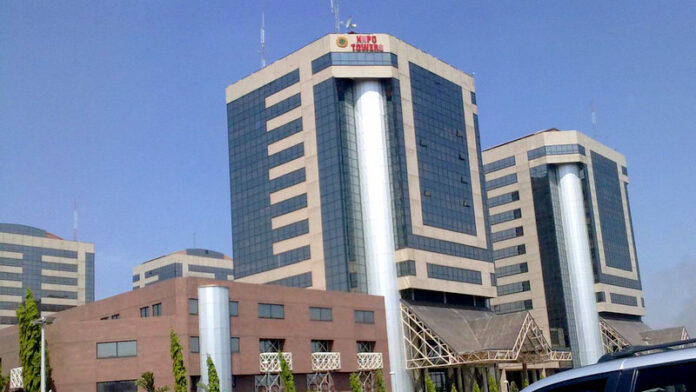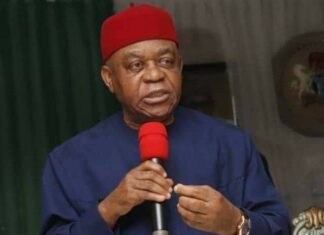Zero income in October despite rise in oil price
By Jeph Ajobaju, Chief Copy Editor
Oil revenue was stuck at N4 trillion in the 10 months to October 2021 on the back of technical problems, among them pipeline vandalism and oil theft.
And the treasury did not receive oil revenue last October despite average production of 1.417 million barrels per day (mbpd) in September, says a report of the Nigerian National Petroleum Company (NNPC).
The report, sent to the Federation Account Allocation Committee (FAAC), disclosed that N199 billion was spent on fuel subsidy in October, with the amount deducted from November revenue due to the FAAC in December, the NNPC explained.
Challenges constrained average oil output to 1.3 million (mbpd), 13 per cent below average OPEC quota of 1.5 mbpd from January to October 2021.
The shortfall could not take advantage of the 49 per cent increase in the price of crude oil during the period to grow oil revenue.
This partly accounted for the 50 per cent increase in fiscal deficit in the 11 months to November last year (11M-2021) and N2 trillion rise in borrowing in 9M-2021.
Central Bank of Nigeria (CBN) data shows that oil revenue for 10M-21 was N4.03 trillion, a 0.2 per cent rise on N4.02 trillion in 10M-2020.
__________________________________________________________________
Related articles:
NNPC makes $45.27m, deducts N127b from FAAC remittance
NNPC generates ₦2.345tr revenue
NNPC may not remit N1.02tr because of fuel subsidy
__________________________________________________________________
Composition of oil revenue
Oil revenue into the Federation Account comprises Crude Oil and Gas exports, Petroleum Profit Tax (PPT)/Royalties, and Domestic Oil and Gas sales, the CBN said, per Vanguard reporting.
The CBN report said:
Stagnation in oil revenue in 10M-21 caused by 62 per cent year-on-year (YoY) decline in Crude Oil and Gas exports and 10 per cent (YoY) slash in Domestic Oil and Gas sales, which cancelled out a 13 per cent (YoY) rise in PPT/Royalties.
PPT/ Royalties revenue rose to N2.77 trillion in 10M-21 from N2.46 trillion in 10M-2020. Its contribution to total oil revenue rose to 67 per cent from 61 per cent.
Crude Oil and Gas Export revenue declined to N125.4 billion in 10M-21 from N326.05 billion in 10M-2020.
Crude oil and gas revenue contribution to total oil revenue fell to 3.1 per cent in 10M-21 from 8.0 per cent in 10M-2020.
Domestic Oil and Gas revenue dropped to N1.04 trillion in 10M-21 from N1.16 trillion in 10M-2020. Its contribution to total oil revenue reduced to 26 per cent from 29 per cent 10M-2020.
Reasons for decline
CBN monthly economic report said: “Domestic crude oil production and export decreased, due to force majeure that led to pipeline shut down.
“Production declined to 1.45 million barrels per day (mbpd) in October 2021, from 1.52 mbpd in the preceding month.
“The development was attributed to operational setbacks, with key pipelines facing persistent sabotage.
“Production concerns plagued the Bonny Light, Escravos, and Forcados, while other significant grades such as Qua Iboe, Brass River, Agbami, Akpo, and Egina remained low.
“Of the 1.45 mbpd produced, exports accounted for an average of 1.00 mbpd, while the balance was for domestic consumption.”
Analysts at KPMG added that “in the first three (3) quarters of 2021, Nigeria was not able to meet its OPEC production quota.
“The average daily production during the first nine months was 1.3 million barrels per day (excludes condensate daily production of 300,000 barrels per day as these do not form part of OPEC quota), compared to average OPEC production quota of 1.5 million barrels per day.
“The major reasons are oil theft, pipeline vandalism and technical issues in restarting reservoirs that have been shut in because of pipeline attacks.”
Impact on deficit, debt
A report by the Nigeria Extractive Industries Transparency Initiative (NEITI) for 2019 showed a loss of 42.25 million barrels of oil worth $2.77 billion caused by oil theft that year.
At the official exchange rate of N416 per dollar, the loss translated to N1.2 trillion loss to the Federation Account.
The report said the loss was incurred by companies that conveyed crude volumes through pipelines vandalised by saboteurs.
This partly accounted for over 50 per cent (N1.75 trillion) increase in fiscal deficit to N7.05 trillion in 11M-2021 and 12 per cent (N2.21 trillion) jump in borrowing to N18.23 trillion in 9M-2021.
“Out of the N2.011 trillion oil revenue forecast in the 2021 budget, the sum of N1.843 trillion should have been realised as at the end of November.
“However, only N970.33 billion was recorded, indicating a shortfall of about 47 per cent,” Finance Minister Zainab Ahmed she said at the presentation of the 2022 budget in Abuja.
Experts surveyed by Vanguard forecast the 2022 outlook as follows:
KPMG analysts
“Most investment banks are very bullish and expect oil price to rise to $100+ in 2022, notwithstanding the impact of the new Omicron variant and the possible release of strategic petroleum reserves (SPR) by some Western countries.
“In fact, the SPR release is not expected to have any significant impact on oil prices and may even send prices higher in the future.
“This bullish sentiment is driven by the prospects of a more vibrant global economy, OPEC’s limited capacity to boost production and the premature shift to reliance on renewable energies, which is leaving many countries vulnerable to the weather and thereby increasing their dependence on fossil fuels.
“In other words, oil will continue to play a central role in meeting the world’s energy needs beyond 2050.
“The general expectation is that oil and gas investment will need to return to the pre-Covid-19 level of $525 billion to restore market balance. In 2021, the investment is estimated at $341 billion.
“The outlook for the global oil industry looks bright based on the general expectation that oil prices will continue to trend upwards until the imbalance in the market is restored.
“However, Nigeria can only benefit from the high oil prices if we are able to meet our average OPEC production quota by addressing the security and related technical problems relating to shut-in production.
“Meeting our quota has even become more critical given the fact that some of the oil exports will be diverted to meeting domestic needs when Dangote Refinery comes on stream.
“It is therefore imperative that the Petroleum Industry Act (PIA), 2021 results in aggressive exploration and development activities to boost our proved reserves, which can ultimately lead to an increase in our OPEC quota.”
Cowry Assets Management analysts
“In our view, the crude oil price benchmark of $62/barrel (for budget 2022) seems quite realistic as the current tightness in the global oil market may persist well into 2022.
“However, the oil production estimate faces the risk of missing the target owing to long-drawn-out production disruptions caused by sabotage of pipelines and oil wells as well as lack of required investment in the sector.
“According to S&P Global Platts, Bonny Light, Escravos and Forcados have all faced production issues in 2021, while the output of other key grades, such as, Qua Iboe, Brass River, Agbami, Akpo and Egina, has also remained consistently low.”














